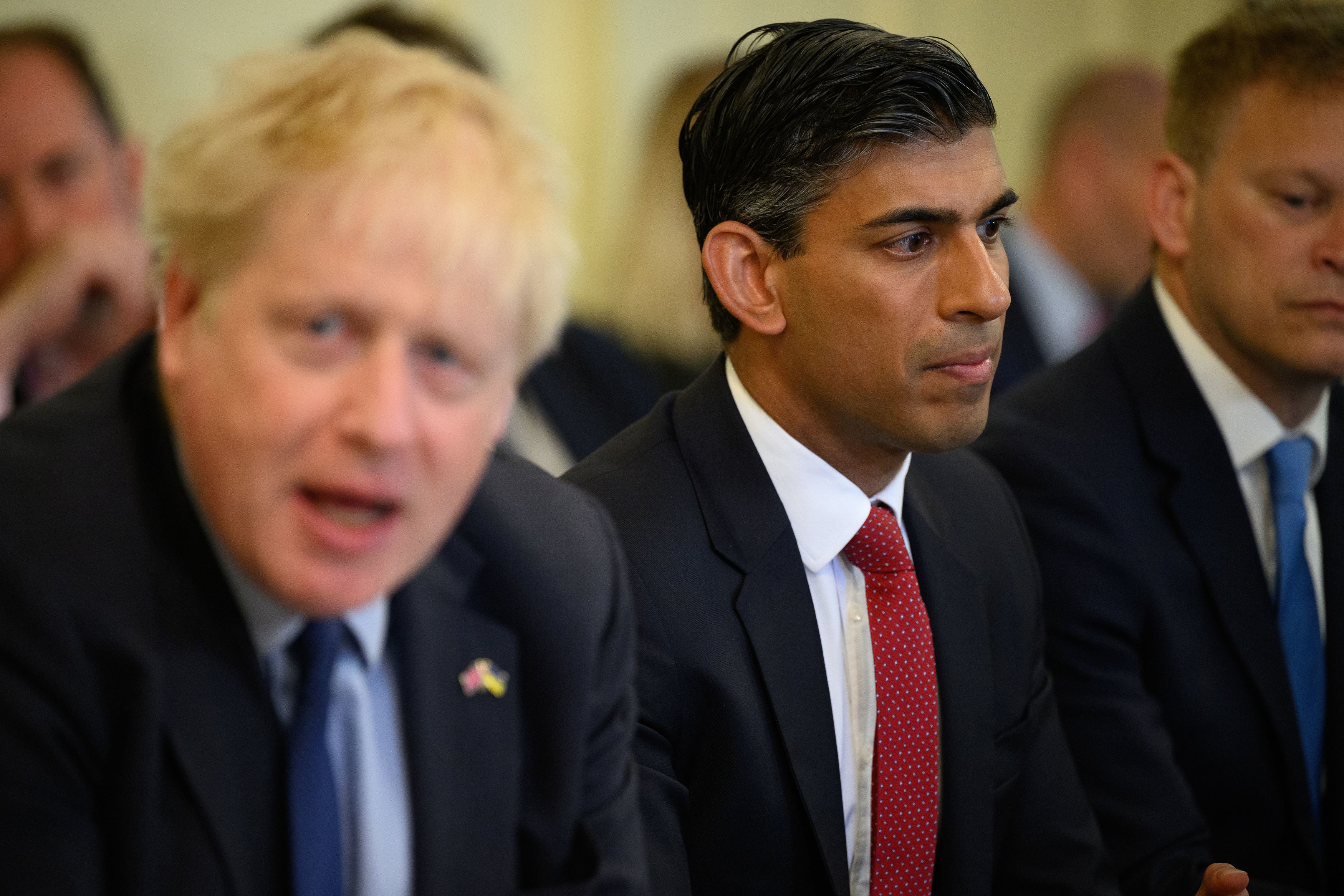Norwegian oil giant ‘threatens to ditch £4.5bn North Sea project over Rishi Sunak’s windfall tax’
The firm ‘privately said’ its funding of the extraction project is ‘under review’, a source has said

Your support helps us to tell the story
From reproductive rights to climate change to Big Tech, The Independent is on the ground when the story is developing. Whether it's investigating the financials of Elon Musk's pro-Trump PAC or producing our latest documentary, 'The A Word', which shines a light on the American women fighting for reproductive rights, we know how important it is to parse out the facts from the messaging.
At such a critical moment in US history, we need reporters on the ground. Your donation allows us to keep sending journalists to speak to both sides of the story.
The Independent is trusted by Americans across the entire political spectrum. And unlike many other quality news outlets, we choose not to lock Americans out of our reporting and analysis with paywalls. We believe quality journalism should be available to everyone, paid for by those who can afford it.
Your support makes all the difference.A Norway-based company is reportedly threatening to pull its funding of a new £4.5bn oil extraction project off the coast of Scotland in protest of the British government’s windfall tax on energy company profits.
Norwegian state energy company Equinor has privately revealed to its industry contacts that it’s reconsidering its plan to drill for oil and gas in the North Sea, in the Rosebank field near the Shetland Islands, according to The Telegraph.
Equinor said that, before it commits to the project, it wants the government to change the terms of its energy profits levy – which was imposed to raise funds to help households with sky-high gas and electricity bills in a cost of living crisis partly stoked by the Russian invasion of Ukraine.
Chancellor Rishi Sunak said about £5bn would be raised through the additional 25 per cent one-off levy on the “extraordinary” profits that energy companies have made since 26 May this year.
It has been reported that the levy has caused friction within the Cabinet. It’s understood that business secretary Kwasi Kwarteng wrote to Mr Sunak last week to warn that the levy – and lack of consultation with the sector – risks losing investment for the North Sea project.
Shortly after the windfall tax was announced, a senior Equinor executive had warned the Rosebank project was in jeopardy – an industry source told the Telegraph.
Equinor had also pushed back its decision for the project to 2023, according to the newspaper.
The source reportedly said: “The biggest one up for debate now is the Rosebank project. Rosebank in particular is definitely up for grabs. Equinor has privately said that it’s under review, but they’ve not done so publicly.
“Rosebank is a big project, but for Equinor frankly it has bigger projects elsewhere. It would be pretty relaxed about saying we don’t want to do that project.”
A spokesperson for Equinor has said: “Equinor welcomes the North Sea Transition Authority’s decision to extend the licence on the Rosebank development project. We will continue to work with our partners and stakeholders to ensure we progress and deliver the Rosebank project to strengthen UK energy security.”
Energy firms are pushing for changes to the windfall tax through industry body Offshore Energies UK.
The trade body wrote to Mr Sunak last week to ask for six urgent amendments, a “clear termination date” for the levy, and an urgent meeting with Downing Street.
Meanwhile, Shell has separately told analysts it is also less likely to develop the £2bn Cambo project in the North Sea after the introduction of the windfall tax.
Earlier this month, Shell’s chief financial officer Sinead Gorman told analysts at RBC Capital Markets that progress on the Cambo field was less likely in the wake of the 25 per cent additional levy.







Join our commenting forum
Join thought-provoking conversations, follow other Independent readers and see their replies
Comments